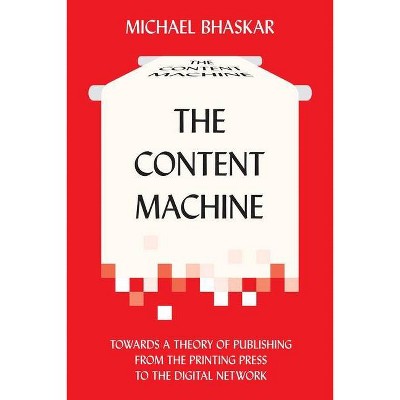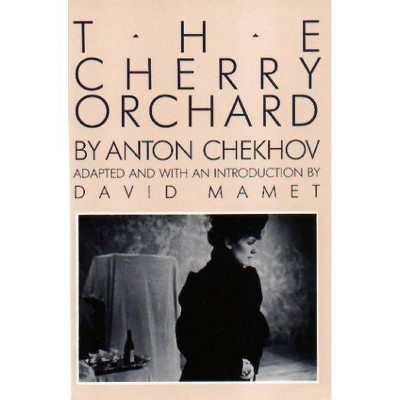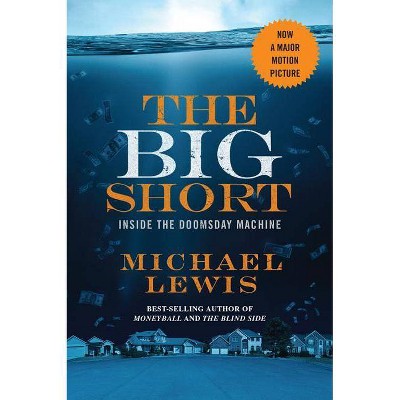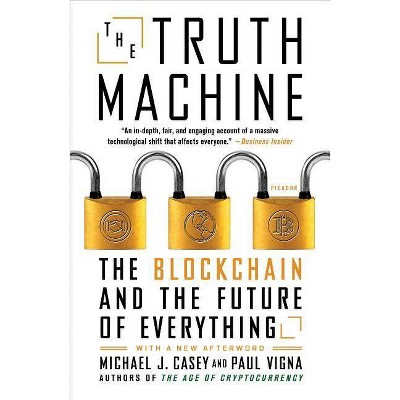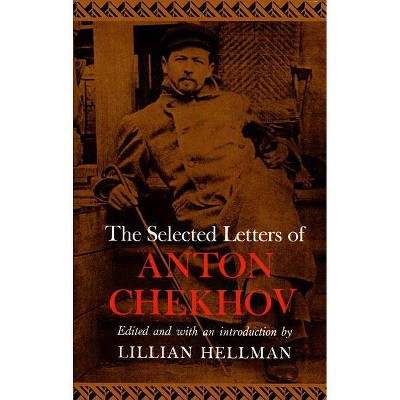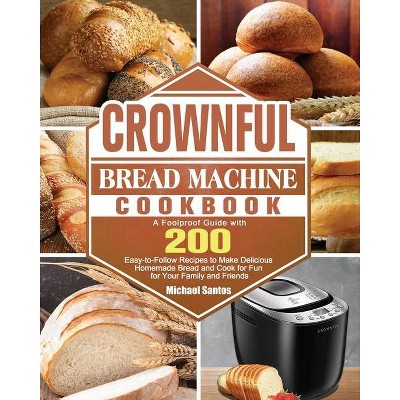The Sculpture Machine - by Michael Anton Budd (Paperback)
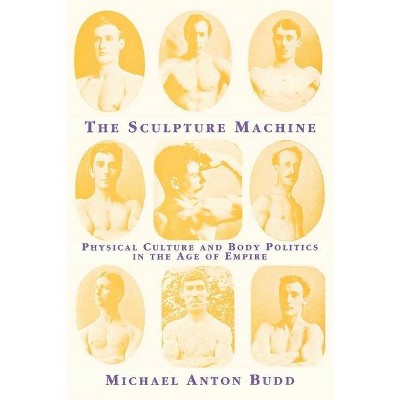
Similar Products
Products of same category from the store
AllProduct info
<p/><br></br><p><b> About the Book </b></p></br></br>Michael Anton Budd's THE SCULPTURE MACHINE traces the tension between the modern world and the classical interpretation of physicality as influenced by technological forces of industry and revolution. This insightful work illustrates how ideas about bodies influence the building of identities in concert with the construction of a larger consumer culture. Illustrations.<p/><br></br><p><b> Book Synopsis </b></p></br></br><p>During the early 1800s, inventor James Watt occupied his final years attempting to develop a mechanical system for copying sculptures of the human body. Though Watt's sculpture machine was never completed (and would, in any event, have eventually been made obsolete with the advent of photography), Watt's quest serves as an incisive metaphor for the subsequent body politics of the nineteenth century. As the modern world emerged, contemporary conceptions of physicality remained rooted in the classical tradition as they were simultaneously influenced by the technological forces of industry and revolution.</p> <p>From Victorian reform to post World War I physical efficiency, Michael Budd's <b>The Sculpture Machine</b> traces this tension between the atavistic and modern in an engaging narrative analysis of physical culture. Budd foregrounds the rise of physical culture postcards, magazines and products by examining longstanding traditions of strength performance and the growing popularity of music hall body builders in the late 1800s. In the physical culture media itself, he uncovers elements of the consumer dynamic that shaped the 20th century tabloid-press as well as early gay-coded publications. From the 1830s through World War I, bodies were increasingly articulated as objects that could be shaped and repaired. Budd's insightful work deftly illustrates how ideas about bodies influenced the building of social, racial, gender and sexual identities in concert with the construction of a larger consumer culture.</p><p/><br></br><p><b> From the Back Cover </b></p></br></br>During the early 1800s, inventor James Watt occupied his final years attempting to develop a mechanical system for copying sculptures of the human body. Though Watt's sculpture machine was never completed (and would, in any event, have eventually been made obsolete with the advent of photography), Watt's quest serves as an incisive metaphor for the subsequent body politics of the nineteenth century. As the modern world emerged, contemporary conceptions of physicality remained rooted in the classical tradition as they were simultaneously influenced by the technological forces of industry and revolution. From Victorian reform to post-World War I physical efficiency, Michael Budd's The Sculpture Machine traces this tension between the atavistic and modern in an engaging narrative analysis of physical culture. In this highly original study of body politics, Budd links the personal and the political in a juxtaposition of popular body images and activities with the discourses of imperialism, degeneracy and social reform. He foregrounds the rise of physical culture postcards, magazines and products by examining longstanding traditions of strength performance and the growing popularity of music hall body builders in the late 1800s. In the physical culture media itself, he uncovers elements of the consumer dynamic that shaped the twentieth-century tabloid-press as well as early gay-coded publications.<p/><br></br><p><b> Review Quotes </b></p></br></br><br><P>"A well-written, historically informed, and original treatment of the Puerto Rican cultural and ethno-class struggle in America. "Boricua Power" is scholarly yet heartfelt and recommended to anyone interested in ethnicity and social power."<BR>-Michael Parenti, author of "The Culture Struggle",<br><br><P>"Jose Sanchez offers a fresh new way of thinking about Puerto Rican politics. Guided by a dynamic and suggestive concept of political power, the author navigates his way deftly through the thickets of volatile debates and controversy in tracking a century-long history of radical class and ethnic speaking-truth-to-power in the Latino vein. Taking us back to the cigar worker strikes before the 1920s, the story of Boricua Power goes on to probe the political scene in the post-World War II era, and then sheds new light on the Young Lords' Party and the exciting political watershed of the sixties and seventies in New York City. To sidestep the pitfalls of blame-the-victim pathologizing on the one hand, and wishful triumphalism on the other, Sanchez's metaphor of the play of power as dance is fun, convincing, and thoroughly apropos."<BR>-Juan Flores, author of "From Bomba to Hip-Hop: Puerto Rican Culture and Latino Identity"<br><br><P>"The strength of this book resides in the rich details about local politics revealed in these chapters."<BR>-"Political Science Quarterly",<br><br><P>"This study fills an important gap by presenting a cogent and historically rich account of community empowerment in the intellectual tradition of political economy."<BR>-"Citylimits.org",<br><br>-,<br>
Price History
Cheapest price in the interval: 28 on November 8, 2021
Most expensive price in the interval: 28 on December 20, 2021
Price Archive shows prices from various stores, lets you see history and find the cheapest. There is no actual sale on the website. For all support, inquiry and suggestion messagescommunication@pricearchive.us

